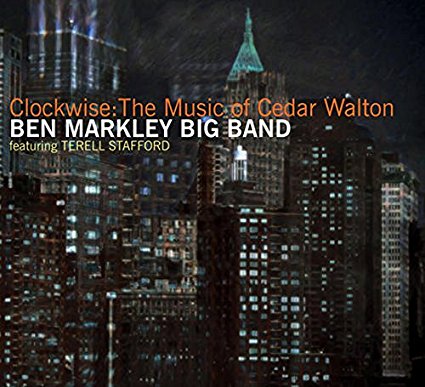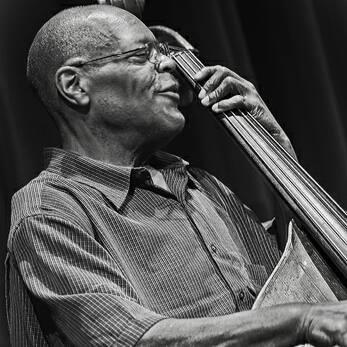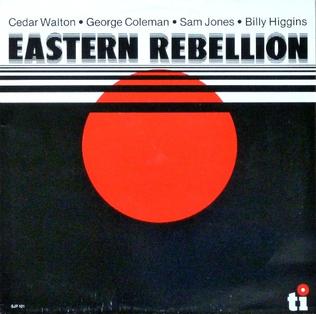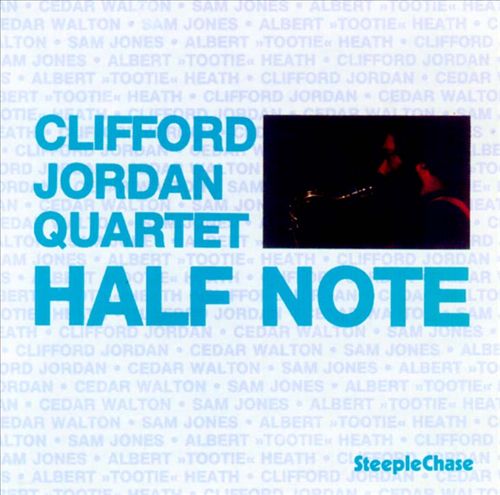February 17th is the official release date for
Clockwise:The Music of Cedar WaltonIn anticipation of the release I will feature each member in the band. It is only fitting we begin with rhythm section first. Today we begin with the inspiration for this entire project - The great Cedar Walton. Cedar is one of the beloved figures from the hard bop era. As a sideman he worked with the best and most influential artists of our time including John Coltrane, Benny Golson, Joe Henderson, Art Blakey, Freddie Hubbard and Wayne Shorter. He was highly sought after because of his excellent work as an accompanist - a skill he perfected while working in one of the classic formations of the Jazz Messenger. As a leader his trio featured the incomparable Sam Jones and Billie Higgins. Several of Walton's compositions are cemented in the jazz canon including Bolivia, Firm Roots, and Hindsight.
One of the most prominent aspects of Cedar's playing is his ever-present ability to play the blues (not just on blues tunes, on everything!). He truly embodies the African esthetic that is present in Black American Music (Swinging and Blues Based) Jazz! In regards to blues tunes, Walton always had a steady diet in his sets and recordings.
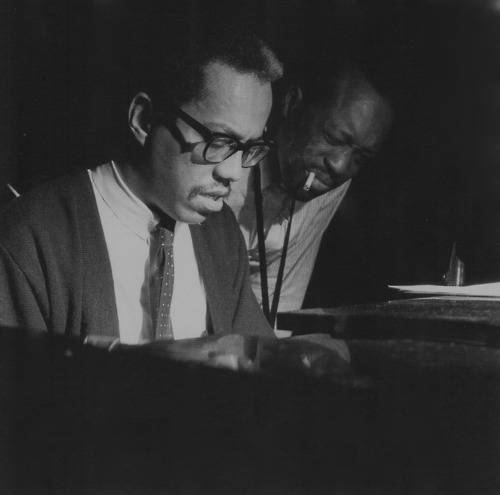
Here is article the New York Times published following Walton's death in 2013.
"Cedar Walton, a pianist who distinguished himself as both an accompanist and a soloist, and who wrote some of the most enduring compositions in modern jazz while a member of Art Blakey’s Jazz Messengers in the early 1960s, died on Monday at his home in Brooklyn. He was 79.
His death followed a brief illness, his manager, Jean-Pierre Leduc, said.
Mr. Walton sat in with Charlie Parker, spent a year accompanying the singer Abbey Lincoln, and recorded with both John Coltrane and, much later, the saxophonist Joshua Redman. He led a series of successful small groups, including a trio and a quartet that both featured his longtime collaborator, the drummer Billy Higgins. Yet he probably remained best known for his early work with one of the most influential incarnations of the Jazz Messengers, the group that the drummer Art Blakey ran as a kind of postgraduate performance academy for rising jazz stars.
Mr. Walton joined the Jazz Messengers in 1961, on the same day as the trumpeter Freddie Hubbard. (Among the other members of the group at the time, was the tenor saxophonist Wayne Shorter.) It was here that Mr. Walton established himself as a composer; over the years he would write a number of pieces that became jazz standards, including “Mosaic,” “Bolivia,” “Mode for Joe” and “Ugetsu,” also known as “Fantasy in D.”
Mr. Walton said his time with the Jazz Messengers helped him greatly as an accompanist, a role he often said he preferred to that of leader. Asked in a 2010 interview — conducted in conjunction with his being named a Jazz Master by the National Endowment for the Arts — what was most important about providing accompaniment in an ensemble that thrives on improvisation, he said, “Total listening.”
Cedar Anthony Walton Jr. was born on Jan. 17, 1934, in Dallas. His mother, Ruth, played and sang popular songs at home. He was not initially interested in reading music, but he showed an early inclination to compose.
Photo
Cedar Walton performing with his quartet in 2009.CreditRachel Papo for The New York Times
“Are you making up songs again?” his mother would call out.
He studied music composition at the University of Denver but later switched to music education. Instead of graduating he left in 1955 for New York, where he soon joined the local jazz scene.
Mr. Walton’s survivors include his wife, Martha Sammaciccia; three children from an earlier marriage, Carl, Rodney and Cedra; and a daughter from another relationship, Naisha.
In April 1959, after serving in the Army, Mr. Walton was sought out by John Coltrane to play on a rehearsal recording for what would become one of his landmark albums “Giant Steps.” Mr. Walton played on the technically daunting title song but declined to take a solo. He soon realized that had been a mistake.
“The song was too hard for me,” he said in a 2011 interview with JazzWax, Marc Myers’s Web site. “But you just didn’t do that. I was young.”
When the album was recorded, Mr. Walton was out of town and Tommy Flanagan played piano. Years later, the sessions with Mr. Walton were released as alternate tracks. By then, he had long since established himself as a forceful and elegant soloist. His years with Mr. Blakey helped.
“He had sort of a bombastic style, but he would leave little openings for you,” Mr. Walton said in the 2010 interview. “So you developed your radar when to get in. If you didn’t get in then, you wouldn’t be heard.”
Clockwise: The Music of Cedar Walton available February 17.
